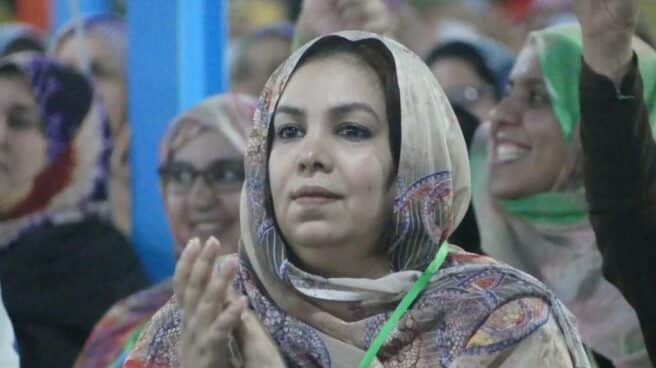

Mahfouda Lafkir, a Sahrawi activist who was persecuted in the occupied territories of Western Sahara.
Activist and sahari express Mahfouda Lefkir reported that agents of the Moroccan security forces attacked her family’s home in retaliation for her actions.
Lefkir assured that his family was a “constant target of intimidation” and that agents attacked the house “to humiliate, verbally attack, harass and threaten his family late at night,” Sahrawi news SPS news agency reported.
“At about six in the morning on September 28, 2023, special groups of Moroccan occupation forces attacked the houses of Sahrawi political and human rights activists Lahbib Butengiza and Mahfouda Bemba Lefkira in the vicinity of the village. Earth occupied city of Laayoune,” the Collective of Sahrawi Human Rights Defenders in Western Sahara (CODESA) said in a statement.
In addition, Lefkir assured that Moroccan security forces are using a “policy of persecution, intimidation and a stifling siege” against Saharan human rights defenders and activists.
In fact, Lefkir herself was admitted unconscious to a hospital in Laayoune as part of a demonstration during the visit of UN Secretary-General Staffan de Mistura’s special envoy for Western Sahara.
This is not the first time Lefkir has been the target of Moroccan repression. Last June, he said he was a victim of human rights violations in a statement to Independent. “I have been under siege, torture and abuse since the beginning of May,” she explained. The activist then reported that she was constantly being followed.
On May 10, the day celebrating the half-century since the creation of the Polisario Front, Lefkir was attacked while visiting the home of her husband’s family. “They demanded that I leave the house immediately under threat of break-in. “I left because I wanted to stop them from coming in and hurting the elderly and women.”
Lefkir is one of the Saharan activists who was denied participation in the program for the reception of human rights activists by the Spanish Foreign Ministry. In the case of the young woman, she must have gone to the Basque Country under the direction of the Spanish Commission for Refugees (CEAR).
Source: El Independiente